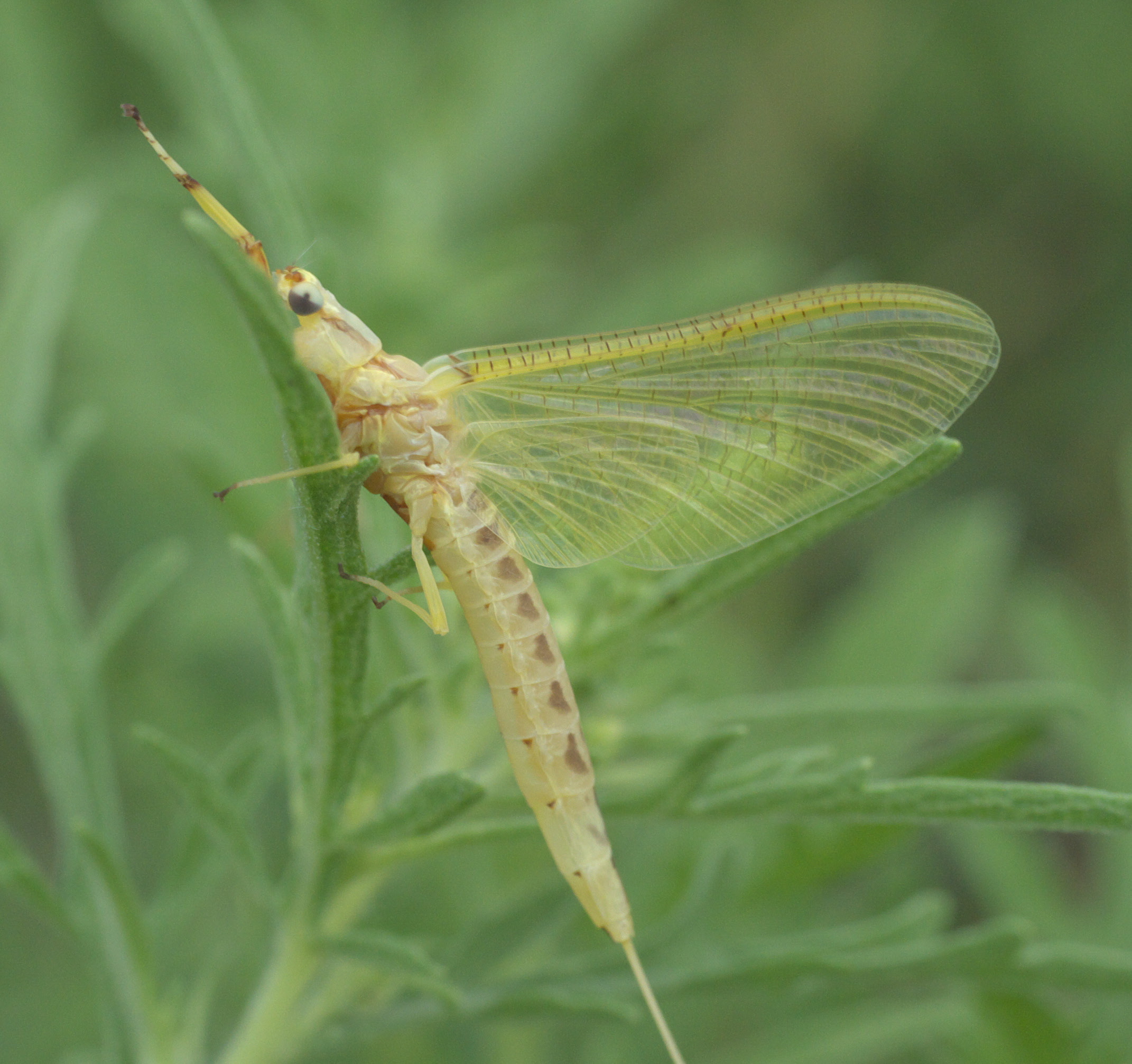Hexagenia on:
[Wikipedia]
[Google]
[Amazon]
''Hexagenia'' is a genus of mayfly in the family


Ephemeridae
Ephemeridae is a family of mayflies with about 150 described species found throughout the world except Australia and Oceania. These are generally quite large mayflies (up to 35 mm) with either two or three very long tails. Many species have ...
, the common burrower mayflies.
Species
These eight species belong to the genus ''Hexagenia'': * '' Hexagenia albivitta'' (Walker, 1853) i c g * '' Hexagenia atrocaudata'' McDunnough, 1924 i c g b * '' Hexagenia bilineata'' (Say, 1824) i c g b * '' Hexagenia callineura'' Banks, 1914 c g * '' Hexagenia limbata'' (Serville, 1829) i c g b * '' Hexagenia mexicana'' Eaton, 1885 i c g * '' Hexagenia orlando'' Traver, 1931 i c g b * ''Hexagenia rigida'' McDunnough, 1924 i c g b Data sources: i = ITIS, c = Catalogue of Life, g = GBIF, b = Bugguide.netGeneral information
''Hexagenia'' are commonly referred to as burrower mayflies as they create u-shaped tunnels in the aquatic substrate where they reside. This shape allows them to draw in water from the surrounding areas by undulating their body near the mouth of the tunnel. ''Hexagenia'' feed upon microscopic organisms suspended in the water column and thus draw in all the food and oxygen they require. Therefore, these burrowing mayflies are often found in shallow substrates of streams and lakes, specifically in areas of slow current. ''Hexagenia'' is similar in size and appearance to ''Pentagenia
''Pentagenia'', similar to Hexagenia, is a genus of insect in the family Ephemeridae, commonly referred to as burrowing mayflies.
General information
Unlike Hexagenia, which inhabit mostly lightly compacted silt substrates, most species of Pen ...
''. The main difference is the rounded frontal process adjacent to the mandibular tusks in ''Hexagenia''. In ''Pentagenia'', this frontal process comes to a point.


References
Mayfly genera {{mayfly-stub